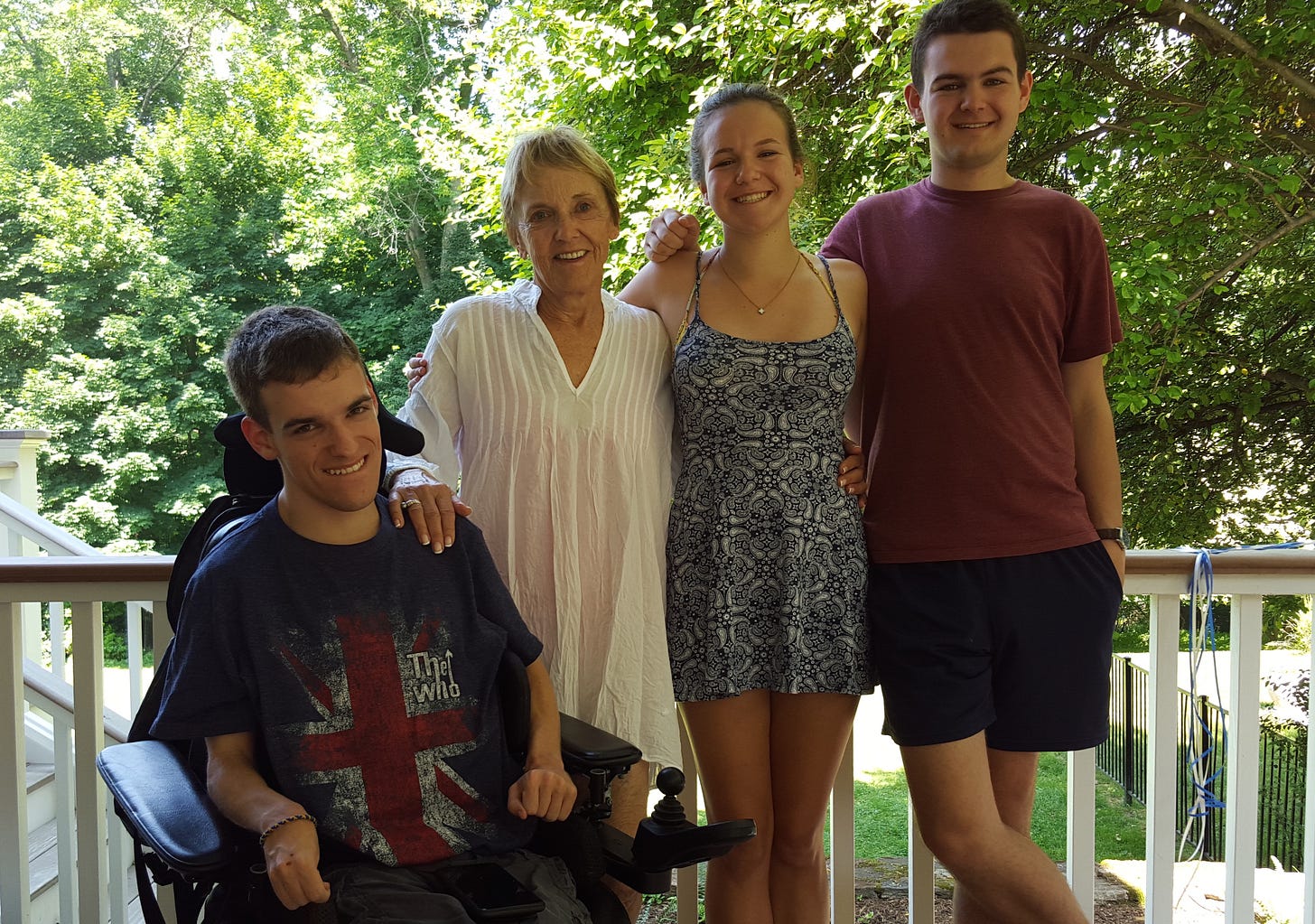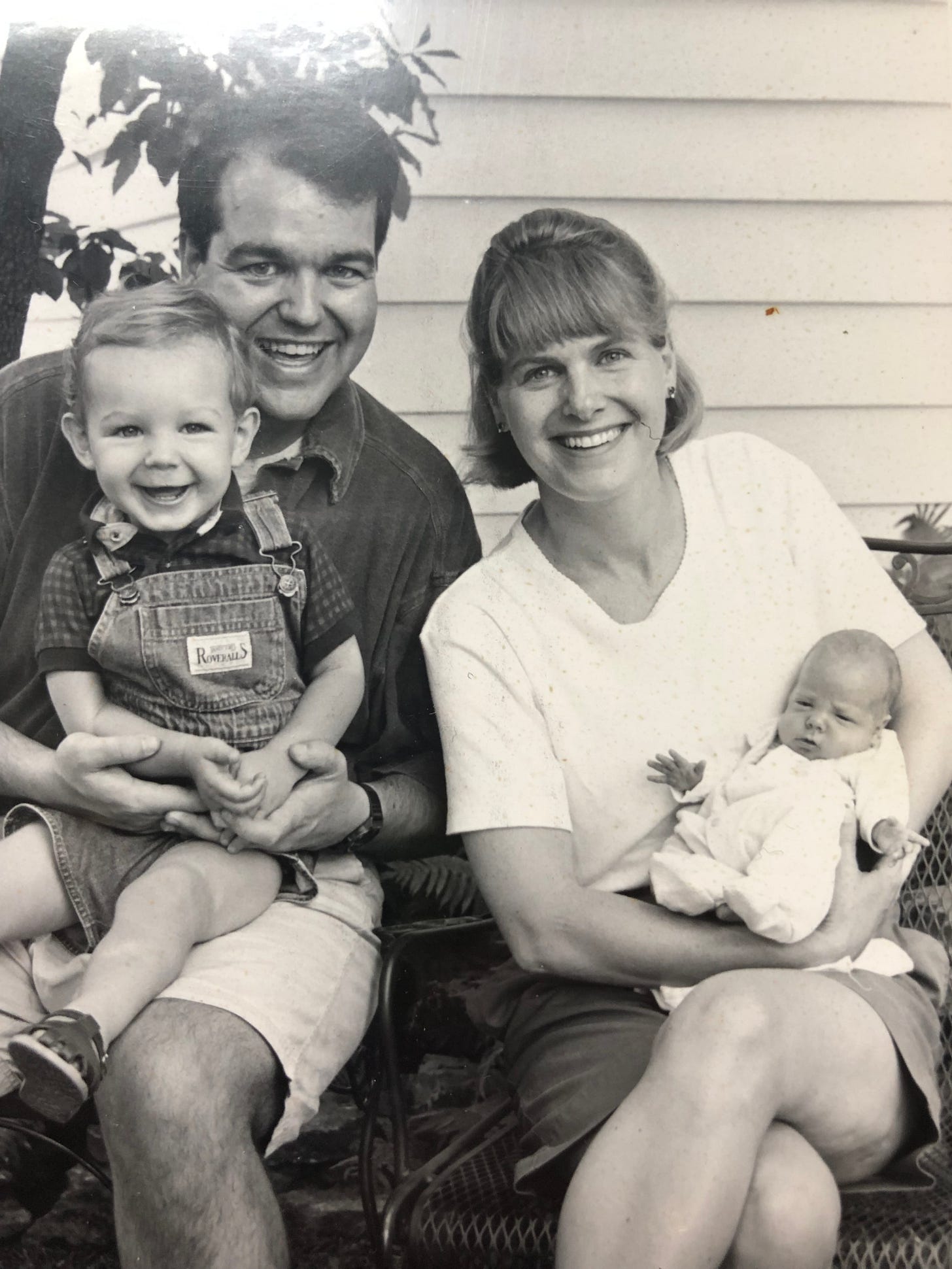Reflections and Remembrance
Volume 88
My beloved mother died unexpectedly a couple weeks ago, and I’m reeling from the loss. Sitting down to write this newsletter feels harder than usual. So I decided to share some reflections today instead of “news and resources.” These relate to disability, because it’s my family we’re talking about (and because of the nature of this newsletter). Hopefully, there’s something here for you to ponder, learn from, or explore further. My mom always gave me good food for thought. Here’s hoping you’ll find some of that below.
What we once enjoyed and deeply loved we can never lose, for all that we love deeply becomes part of us.
—Helen Keller
Our family returned to Ohio on January 25th, immediately following my mom’s sudden passing. As is often the case, we stayed busy for many days: planning a memorial service, reflecting with friends and relatives about what an amazing life Mom lived, and crying together and separately. None of us was ready to say goodbye.
Upon our return to Connecticut, my husband and I were sharing thoughts about our time in Cincinnati. For some reason, our conversation turned to photographs. We’ve looked at so many over the past couple of weeks — examining my mother’s life in pictures, I think, and thus examining a good portion of our own lives, as well. John noted how strange it was to see so much of our younger selves in these photos. I couldn’t agree more.
Seeing these pictures was a stark reminder that:
We’ve been doing this special needs parenting thing since the tender age of 32. (We both will turn 60 this year!)
We were totally unprepared for it.
We’ve luckily had a lot of help throughout the years.
Looking at photographs also led to important reflections and learnings:
Building a support network is vital to surviving the journey of raising kids with disabilities. And making friends with like-minded parents makes the journey more navigable — even fun at times. These relationships have grown stronger for our family over the years, adding lightness and humor when we need it most — in both life and now death. (Thank you, friends. You know who you are.)
Letting our parents in on the challenges we face helped them be better grandparents. I sometimes struggled with this, especially when our kids were young. When we felt burdened by educational and medical issues. When I wanted to come off as strong, though I really felt weak and vulnerable. I’m glad I shared so much with my folks. And I’m glad they worked hard to understand the “another normal” that is our life. It made our time together real and special, even if they couldn’t “fix” our problems. Even if I couldn’t fix theirs.
Teaching friends and family how to help and support us is challenging, but so worth the effort. After all, our lives are a marathon, not a sprint. Understanding and empathy are as important as the air we breathe.
Letting go and living with loss is something we all experience differently — including individuals with disabilities. I think we need to talk about it abstractly (What will it be like for my kids when I die?) as well as concretely (How do you feel about losing your grandmother?). I think we need to summon the courage to have these conversations, even when we don’t want to and are terrified to even consider such realities.
I’ve got lots of good information lined up for future newsletters, but I appreciate your helping me process my grief through this very personal issue. Please reach out below or here if you want to share related thoughts or experiences. Until next time, thanks for being here.
Another Normal is a newsletter dedicated to helping families with disabilities bloom and thrive. If this e-mail was forwarded to you, please subscribe and join our community. You can also hit the “heart” button at the bottom of this e-mail 🖤 to help others find us on the internet.





Thanks for sharing.
Sorry for your loss, Kris. Thank you for sharing your reflections.